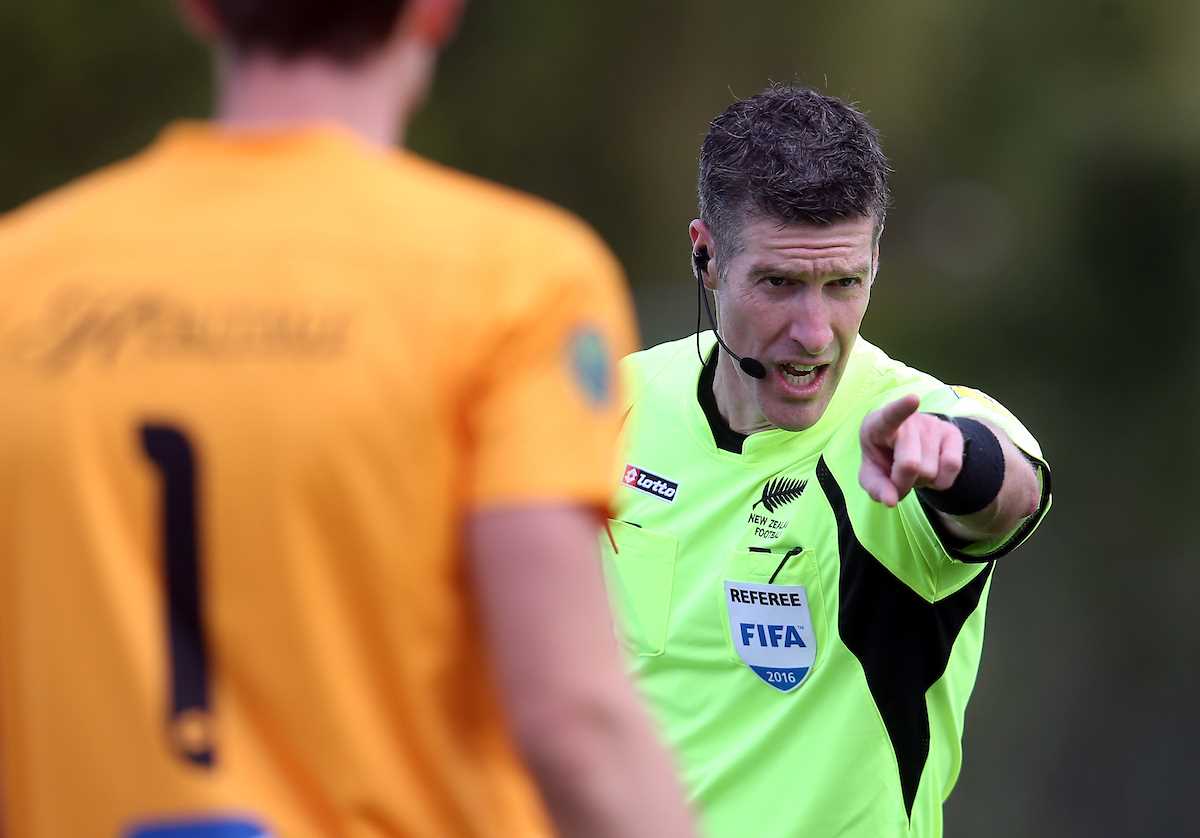
Referee Conger achieves lifelong dream

It has always been Matt Conger’s dream to be involved in the biggest football event on the planet and that has now become reality after his selection to officiate at the upcoming 2018 FIFA World Cup, set to take place during June and July in Russia.
The Oceania region will be represented by referee Conger and the rest of his match official trio, which consists of fellow New Zealand-based assistant referee Simon Lount and Tonga’s Tevita Makasini. The only other Oceania referee selected is Tahiti’s Norbert Hauata while New Caledonian assistant referee Bertrand Brial is also heading to Russia.
For Conger, getting to this point is the culmination of years of hard work and the relentless pursuit of a goal he has held since childhood.
“I’ve dreamed of being involved in football on the world stage ever since I was probably seven or eight years old,” he says.
“So it is a bit like a dream come true but it’s one that has become more realistic as time went on and the dreams shifted into goals. So it is a dream but it does feel realistic and like it’s the next logical step for us,” he adds.
Conger has been in the FIFA World Cup programme since the end of 2014, when he attended his first pre-selection seminar. Since then, he and the rest of his trio have attended a number of seminars in the Middle East – which acts as a meeting point for match officials from Oceania, Asia and Africa – and gained valuable experience at the FIFA U-20 World Cup, Rio Olympic Games and FIFA Club World Cup.
“It’s been a constant series of performance, seminar and fitness testing over the last number of years,” he explains.
Officiating at the senior World Cup will be the highlight of each of the Oceania representatives’ careers but Conger says his trio will approach the task in the same manner as any other match or tournament.
“We’ve laid a really strong foundation and groundwork within our team as to how we look at matches and make decisions as a team. It’s very much about keeping a level head and being calm but also 100 per cent enjoying it and appreciating the experience,” he says.
“We will just be saying that it’s still team A and team B, we’ve got to make decisions and everything else will take care of itself.”
Conger grew up in the United States and first picked up a whistle as a 15-year-old, eventually giving up playing to focus solely on refereeing. He has been living in New Zealand since 2005 and is based in Palmerston North, where he works part-time as a teacher at Carncot School and is grateful to the support provided by his employers and family.
“I’m fortunate to have the support of the principal, board and staff to be able to teach when I’m available and then go off and do my refereeing,” he says.
“But it’s a broad network of friends and family – my wife and four kids are the ones who make the major sacrifices in terms of all my time away and bearing the brunt of normal life. This is certainly not something that can be achieved on my own and I’m lucky to have that huge support network.”
He is also quick to pay tribute to the impact of the New Zealand Football referee development programme, which is led by Ken Wallace and has achieved impressive results in recent years with many Kiwi match officials appearing on the world stage.
“New Zealand Football bats above its weight when it comes to refereeing and we’ve shown that we can be involved with the best in the world. If you look back, I’m now the third consecutive men’s referee to have refereed at the World Cup and the men probably live in the shadow of Anna-Marie Keighley, who has refereed a semi-final at the FIFA Women’s World Cup.”
Conger gets a huge amount of joy from refereeing and would love to see many other Kiwis follow in his footsteps.
“We’re involved in the real heart of the game and it’s the best seat in the house – we see great goals,” he says.
"I would encourage anybody to do it and I often say to players that refereeing is in safe hands because we’ve got 22 potential referees on the field – you’re all capable of making decisions so pick up a whistle when you retire and give it a crack.”

New Zealand Football Inc
Football House, North Harbour Stadium,
Stadium Drive, Albany,
Auckland, New Zealand
© Copyright New Zealand Football. All rights reserved.

Sign up to our fan newsletter: